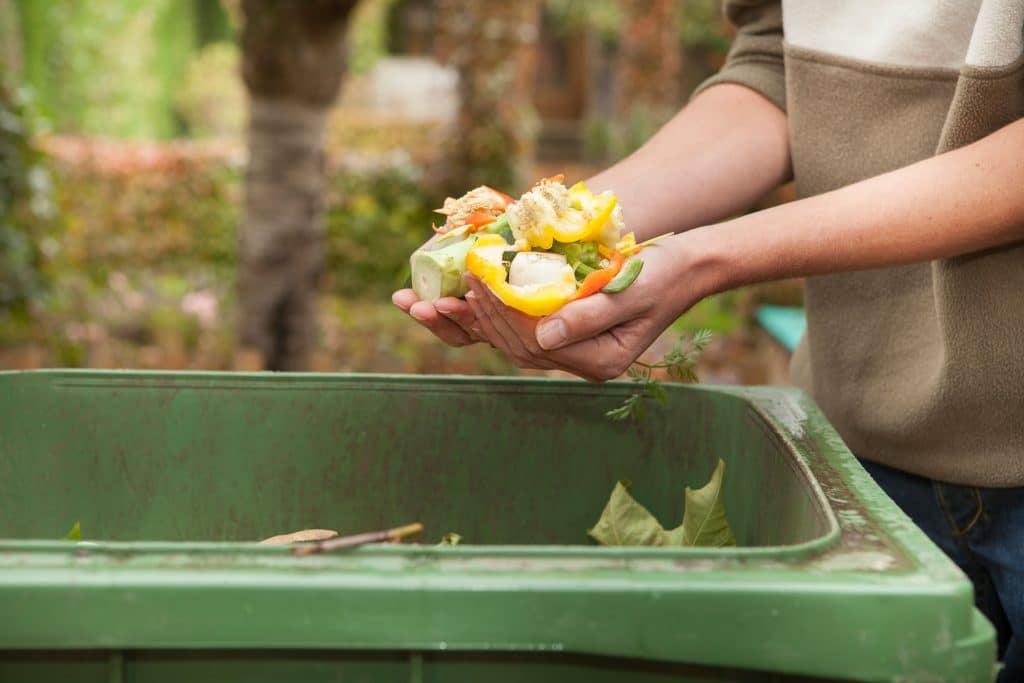
The viability of a food and green waste bin collection trial will be investigated to divert thousands of tonnes of waste from landfill.
Household Food Organics and Garden Organics (FOGO), or food and green waste, accounts for a significant portion of the region’s kerbside collection waste.
When it ends up in landfill it contributes to the production of methane (a harmful greenhouse gas) from rotting food scraps and garden materials.
At its Ordinary Meeting on 28 October, Bundaberg Regional Council resolved to progress with a peer reviewed business case on the introduction of a food and green waste bin collection service in the Bundaberg Region.
Waste and Recycling portfolio spokesperson Cr Tanya McLoughlin said Council was committed to diverting as much waste from landfill as possible.
“At the moment we send 30,000 tonnes of waste from household bin collections to landfill per year,” Cr McLoughlin said.
“Of that waste, food organics make up about 23 per cent and garden organics another 35 per cent.
“That means the introduction of a food and green waste bin collection service could divert thousands of tonnes of waste from landfill each year.”
Council has been investigating the viability of introducing a weekly FOGO collection service with recent advice from the State Government regarding its Waste Levy confirming a significant financial impact would occur under current processes.
Currently, the State Government Waste Levy payable on household waste to landfill is $3.8 million. But new details about the phasing out of State Government subsidies on household waste reveal a $26.6 million shortfall over the next 10 years if no action is taken.
This aligns with the Queensland Waste Management and Resource Recovery Strategy target to reduce waste to landfill.
Mayor Jack Dempsey said Council had taken a prudent approach to a household FOGO, or food and green waste, bin collection service to ensure its financial viability for residents.
“By working in tandem with the advice being released by the State Government we can ensure that any changes to our collection and processing of household waste stay abreast of state-wide expectations,” Mayor Dempsey said.
“This is the first step towards diverting what is a valuable resource from landfill and supports our advocacy priority to facilitate the establishment of a circular economy.”
Cr McLoughlin said an internal FOGO business case created by Council’s waste team would now be peer reviewed.
“This is the first step to introducing food and green waste bin collection to the region.
“The next step is to assess the business case following which, if it confirms the findings from our waste team, Council will look to begin a trial in 2023.”
The initial FOGO trial would involve a limited number of households in clearly defined and efficient collection route areas and would allow Council to collect data to inform any potential procurement process for the introduction of FOGO collection more broadly throughout the region.
Council will work with the State Government to identify funding opportunities to help make food and green waste bin collection a reality in the Bundaberg Region.





green waste AT WHAT COST
Around 99% of my Green lid bin is Garden Organics. I through out almost no food. If I don’t mow the lawn that week the green lid bin is practically empty.
–
The rest goes into the yellow lid recycle bin…
Perhaps on top we could do what many other Councils are doing?
Collect & convert CO2 into Methane
Collect Methane
Use gas to make electricity
–
This would reduce the impact from existing land fill as well & make money to offset the cost of picking up extra bins?